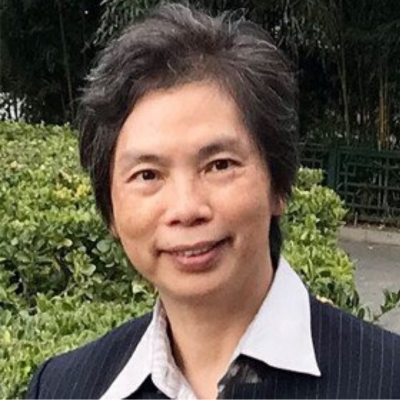 Dr Jo-Anne Chuck
Dr Jo-Anne Chuck
Assoc. Professor – School of Science
Western Sydney University
- Implementing AI-detection tools to identify AI-generated content early ensuring that assignments remain fair and authentic
- Providing professional development to educators on AI literacy and strategies to educate and support students in ethical use GenAI tools for creative knowledge work
- Developing updated academic policies to address the use of AI tools in assignments, creating clear guidelines that foster a culture of honesty
 Professor Nancy Law
Professor Nancy Law![]()
Associate Dean (Research), Education Faculty
University of Hong Kong
- Establishing clear guidelines for the ethical use of AI in student assessments to ensure students understand the boundaries of acceptable AI use without compromising their academic integrity
- Implementing AI detection and monitoring tools to identify potential misuse and safeguard academic standards and trust in student work
- Developing educational resources and support systems for students to empower them in using AI tools responsibly while encouraging original thought and personal contribution
 Dr Yvette Blount
Dr Yvette Blount
Dean and Associate Professor
Skyline Higher Education Australia
- How can institutions keep up with fast-paced generative AI developments without teachers and students feeling overwhelmed?
- How can educators integrate new AI tools into their classrooms without disrupting established teaching methods?
- How can generative AI be used to support professional development for educators, helping them stay current with technological advances?
- How can universities and vocational training centres plan for long-term AI integration while remaining flexible enough to adapt to new innovations as they emerge?
Moderator:
 Dr Jo-Anne Chuck
Dr Jo-Anne Chuck
Assoc. Professor – School of Science
Western Sydney University
Panellists:
 Glen Babington
Glen Babington
Chief Operating Officer and Vice-President
UTS
 Sam Jacobs
Sam Jacobs
Chief Executive Officer
Collarts (Australian College of Arts)
 Professor Sarah Maddison
Professor Sarah Maddison
Deputy Vice-Chancellor – Education & Student Experience
UNSW
- Analysing student performance data to identify strengths and gaps to enable targeted support that boosts retention and achievement
- Adapting course materials based on individual learning preferences to create a tailored experience maximising comprehension and engagement
- Providing AI-driven recommendations for additional resources to empower students to explore topics of interest and deepen their knowledge independently
 Dr Selene Martinez Pacheco
Dr Selene Martinez Pacheco
Associate Director – Centre for Learning, Teaching and Scholarship
Torrens University
- Implementing AI-driven emotional analysis and interaction tracking to detect early signs of mental health issues, enabling timely support and fostering a safer learning environment
- Enhancing student mental health outcomes through AI-based interventions, providing personalised care to improve overall well-being and academic performance
- Creating transparent AI usage policies to balance ethical considerations and privacy, building trust and ensuring the informed consent of students and faculty
 Professor Alphia Possamai-Inesedy
Professor Alphia Possamai-Inesedy
Pro Vice-Chancellor (Engagement and Advancement)
Western Sydney University

